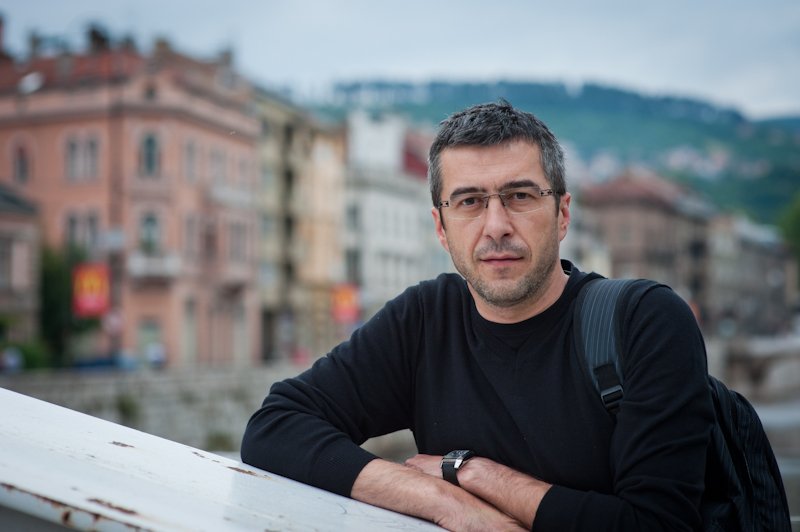2023 Annual Conference
INTERNATIONAL CONFERENCE
Ethics of Reconciliation – European perspectives
Societas Ethica’s 59th Annual Conference 2023
August 24-27 2023, Sarajevo (Bosnia and Herzegovina)
Ethics of Reconciliation – European perspectives
The concept of reconciliation, in a social context, refers to the potential of restoring broken trust and relationships, and the need for a community and persons to recover from damages caused by conflicts and wars. Reconciliation has been studied by theorists as well as discussed by practitioners from a variety of perspectives among which ethics of reconciliation is one of the most important. The relationship between reconciliation and justice is, naturally, one main issue of ethical concern. However, this relationship is marked by significant differences in experience of conflicts, demand for justice, and limits of reconciliation.
Current developments in Europe – such as Russia’s aggression against Ukraine, several conflicts marked by escalating violence towards minorities, militarization of many European countries, and increasing scepticism towards pluralistic models of democracy – urge for a deeper scrutiny of philosophical, legal, and theological approaches to reconciliation.
Societas Ethica invites ethicists to its annual conference in Sarajevo 2023 that will be devoted to ethics of reconciliation with particular attention paid to European experiences of and perspectives on social, political, and religious conflict. What are resources and obstacles to reconciliation if assessed from a perspective of ethics? How should we understand the relationship between reconciliation and transitional justice? When and how might the longing for reconciliation promote or devaluate social justice? What resources for a more nuanced and critical approach to reconciliation are there in different religious traditions?
Societas Ethica promotes scholarly dialogue between philosophers, theologians, and theorists working within applied ethics.
Keynote-Speakers:
Professor of Sociology Dino Abazovic (Sarajevo)
Professor of Systematic Theology and Ethics Martin Leiner (Jena)
Professor of International Relations Kjell-Åke Nordquist (Stockholm)
Professor of Gender Studies Zilka Spahic (Sarajevo)
Prof. Dr. Dino Abazović
Faculty of Political Science, University of Sarajevo
Political reconciliation: Illustration from Bosnia and Herzegovina
In addition to being war-torn, post-conflict, disoriented, and entrapped in so-called transition, we can also better appreciate the current status of Bosnia and Herzegovina and its “agony” by viewing it through the prism of its specific and pervasive societal processes. The country is in a situation of facing its past with an underlying tension between politics of denials and (non-) articulated oral histories. In scholarly works, unsurprisingly, this tension has been addressed under the ‘aegis’ of transitional justice, including problems of truth seeking and truth telling, retribution and restoration, and finally, reconciliation. One of the most difficult dilemmas which Bosnian-Herzegovinian society faces is its own past. This leads us to ask whether the issue of reconciliation – as restoration of right relationship - should ‘naturally’ be considered as a matter of utmost relevance for sake of its own future!? In talk I will argue that problem of reconciliation in Bosnia and Herzegovina is above all a problem of political reconciliation (and forgiveness). This is seen in the context of the tension in society between retributive and restorative justice. Then I will go on to explore the ambiguous role of specific actors (non-) influencing the process of reconciliation. Two kinds of actors are crucial here: the ethno-political elites and the respective religious leaders.
Prof. Dr. Martin Leiner
Chair of Systematic Theology and Ethics, University of Jena, Germany
Fundamental decisions for a theological ethics of reconciliation
Having worked in different areas of reconciliation studies for almost two decades, I return to theological ethics. Ethics, and especially theological ethics seem to be a missing component in reconciliation studies. On the other hand, (theological) ethics rarely have considered reconciliation as an overarching or at least as a central topic. Building on the conviction that human beings are permanently embedded in their environment and that ethical reflection needs to integrate our relationships with the world and ourselves, I will argue that human agency is caused by “unhappy“ or at least improvable relationships and the desire to improve said relationships. If we define reconciliation broadly as the creation of better relationships, reconciliation can be considered basic for human life. The search for reconciliation, then, can be described as a driving force deeply rooted in human existence. One basic decision is how to relate freedom to this search for reconciliation. A second fundamenal question this presentation will discuss is how theological ethics relates to the endless search for reconciliation with the biblical quote in 2 Corinthians 5,19, where Saint Paul states that God was in Christ and has reconciled the world to himself: God was in Christ, reconciling the world unto Himself.
On this basis, I will provide examples of how theological ethics of reconciliation can contribute to finding better propositions for applied ethics problems.
Prof. Dr. Kjell-Åke Nordquist
School of Human Rights and Democracy
University College Stockholm, Stockholm, Sweden
Kjell-Åke Nordquist is Professor of International Relations at University College Stockholm, Sweden, specialising in peacebuilding, mediation and Human Rights. A former Head of the Department of Peace and Conflict Research, Uppsala University (1999–2005), Sweden, Nordquist has combined his social science background with studies of religion and ethics, particularly in relation to the relationship among religion, politics and reconciliation. Nordquist has published "Gods and Arms" (2013) on the connection between religion and war, "An Unlikely Dilemma" (2011) on the tension between peace and justice as theoretical concepts and field practice, and "Reconciliation as Politics. A Concept and Its Practice" (2017) which is based on a multi-year experience as facilitator, analyst and consultant to political reconciliation processes after civil war and authoritarian rule.
The concept and practice of ”reconciliation" in a political context raises ethical challenges, both for those directly involved for and the societal context in which processes of ”reeconciliation” take place. The comparatively recent introduction of ”reconciliation” in the language of politics, conflict, and social relations, gives in itself reason to discuss what kind of - if any - contribution to political and moral discourse that comes with the concept of ”reconciliation”. The well-known processes in recent decades, from Chile and Argentina, via South Africa, to recent examples of Canada, Australia and the Scandinavian countries, and their approaches to their respective indigenous populations, raises critical issues about intergenerational responsibility, the concepts of victim and offender, as well as of what forms of redress that meets ethically defensible positions.
Prof. Dr. Zilka Spahić Šiljak
Professor of gender studies, University Gender Resource Center, University of Sarajevo
Feminist approaches to reconciliation in the Balkans
Ethno-nationalism that replaced socialism in the Balkans used gender in constructing the identity politics in 1990s with images of women as producers and re-producers of collective identity discourses as well as the boundaries ethnic groups (Anthias&Yuval-Davis 1989, Enloe 1989, Mclintock 1993, Žarkov 2007). Feminist scholarship theorized intersection of gender reconciliation and nationalism but in the ethnically divided post-socialist Balkans women are still excluded from the decision-making processes and their peace and reconciliation work is not valued and recognized.
This paper discusses feminist approaches to peace and reconciliation with ethics of care and ethics of justice that are focused on women’s experiences, compassion, openness, against dualisms and male privileges.
Link to the chapter "Victim or survivor? Choosing identity after wartime sexual violence" in Healing and Peacebuilding after War (2020).
Support by Renovarbis
Societas Ethica wishes to thank Renovarbis for the generous support of Societas Ethica’s 59th annual conference in Sarajevo. The excellent support enables us to have the conference in Sarajevo, with prestigious keynote speakers and significant local participation.
To read more about Renovarbiswork, please use this link: https://www.renovabis.de/en/ueber-uns/renovabis-in-kuerze





